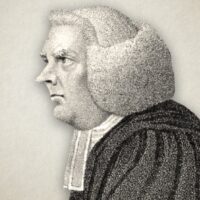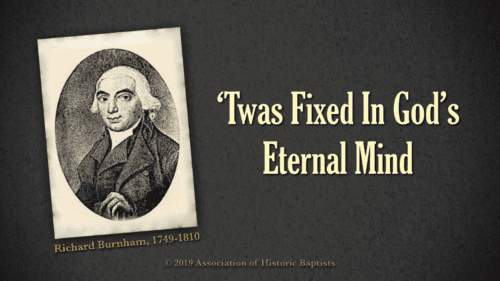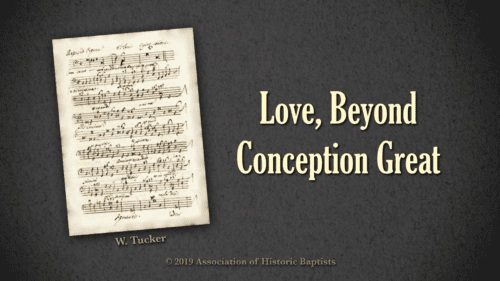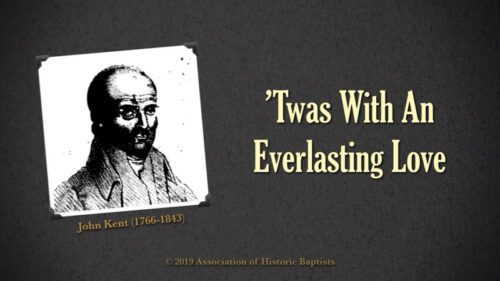Some Wise Men Of Opinion Boast
1 Corinthians 2:1-5: “And I, brethren, when I came to you, came not with excellency of speech or of wisdom, declaring unto you the testimony of God. For I determined not to know any thing among you, save Jesus Christ, and him crucified. And I was with you in weakness, and in fear, and in much trembling. And my speech and my preaching was not with enticing words of man’s wisdom, but in demonstration of the Spirit and of power: that your faith should not stand in the wisdom of men, but in the power of God.”
1 Corinthians 3:18-23: “Let no man deceive himself. If any man among you seemeth to be wise in this world, let him become a fool, that he may be wise. For the wisdom of this world is foolishness with God. For it is written, He taketh the wise in their own craftiness. And again, The Lord knoweth the thoughts of the wise, that they are vain. Therefore let no man glory in men. For all things are yours; whether Paul, or Apollos, or Cephas, or the world, or life, or death, or things present, or things to come; all are yours; and ye are Christ’s; and Christ is God’s.”
John Berridge (1716-1793) was an English gospel preacher and hymn writer, belonging to the Anglican church. He nurtured free will views of the gospel in his early years, but adopted sovereign grace convictions as he matured in the faith. John Gadsby wrote of him,
John Berridge was born at Kingston, in Nottinghamshire, March 1st, 1716. His father was a wealthy farmer at Kingston, and intended to bring John up to agriculture, and for that purpose took him to markets and fairs, that he might become acquainted with the price of cattle and other things connected with farming; but, whenever his father asked him what he conceived was the value of such and such a thing, he was invariably so far out in his judgment that his father despaired of his ever being a competent agriculturist, and so ceased from endeavoring to instruct him in that line. The truth is, God had designed him to occupy a more exalted station. The circumstance to which he ascribed his first serious impressions was singular. Once, as he was returning from school, a neighboring youth invited him into his house, and asked if he should read a chapter to him cut of the Bible. He consented. This being repeated several times, he began to feel a secret aversion to it, and would gladly have declined accepting these friendly invitations. But having obtained the reputation of being a pious child, he was afraid to risk it by a refusal. On his return from a fair, where he had been to enjoy a holiday, he hesitated to pass the door of his young neighbor, lest he should be accosted as before. The youth, however, was waiting for him; and when he approached, renewed his invitation, and, in addition to his former request, asked if they should pray together. In this exercise it was that he began to perceive he was not right, or the amusements of a fair would not have been preferred to the pleasures of devotion. And such was the effect of this interview, that not a great while after, he himself adopted a similar practice with his school companions. At the age of 14, God was pleased to convince him that he was a sinner, and must be born again. About this time he left school, and returned to his father, with an intention to apply himself to business. A tailor who was occasionally employed in the family, being a man of strict sobriety, and struck with the uncommon appearances of religion in one so young, conversed with him on serious subjects, whenever he came to the house on business. As opportunities of this nature seldom occurred, John's love for religion induced him to cultivate a more intimate acquaintance with this man, by going frequently to his house for the purpose of serious conversation. His relations at length suspected he had too much religion, and fearing to what it would grow, discovered some inclination to discourage it. They insinuated that, since his attachment was so strong to his new companion, he should be bound to him in articles of apprenticeship. This threat had not the designed effect; for so prevalent was his bias to reading, prayer, and serious discourse, that he frequently repeated his visits. Finding this their scheme unsuccessful, and conceiving that his predilection for reading and religion would entirely unfit him for business, they resolved, though reluctantly, to send him to the university. In this determination, which was perfectly congenial with his own inclinations, he most readily concurred; and, after previous preparation, entered Clare Hall, Oct. 28th, 1734, in the 19th year of his age. A neighbor soon after meeting his father, and inquiring for his son, he jocosely replied, "He is gone to be a light to lighten the Gentiles." This testimony was true. Being now in his element, he pursued his studies with uncommon avidity, and made such progress in every branch of literature as rendered him in no respect inferior to any of his contemporaries. Favored with a good understanding, improved by literature, and possessing a natural vein of humor, which was extremely fascinating, he rose in respect; and his acquaintance was courted at the university by ecclesiastics of superior rank, though of wider principles and less rigid morals. "So insatiable was his thirst for knowledge, that from his entrance at Clare Hall to his acceptance of the vicarage of Everton, he regularly studied 15 hours a day. A clergyman, with whom he had been in habits of friendship about 50 years, said of him, that he was as familiar with the learned languages as he was with his mother tongue, and that he could be under no temptation to court respect by itinerant preaching, for he merited and enjoyed that in a high degree among all ranks of literary professions at the University. Being of a witty turn of mind, he read with avidity various works of wit, which, together with his natural humor, made him such excellent company at the college that whenever it was known he was to be present at any public dinner, the table was sure to be crowded. Socinian principles were then widely prevalent, and as evil communications corrupt good manners, he caught the contagion, and drank into the Socinian scheme to such a degree as to lose all serious impressions, and discontinue private prayer for the space of ten years, a few intervals excepted. In these intervals he would weep bitterly, reflecting on the sad state of his mind, compared with what it was when he came to the university, and would frequently say to a fellow-student, who became an eminent minister in the Establishment, “O that it were with me as in years past!" Conscience, however, at length resuming her authority, he was compelled to relinquish sentiments so derogatory to God, and so subversive of every good principle and practice. He now discovered that they not only lessened God the Son in his esteem, but God the Father also, and tended to promote no higher a morality than what comported with all the maxims and pleasures of the present world. With the renunciation of his former errors, he returned to the regular excercise of devotional religion, although it was but a small remove, if any, from pharisaical. Soon after this, he began to feel strong inclinations to exercise his ministry; and accordingly, in the year 1719, accepted the curacy of Stapleford, near Cambridge, which he regularly served six years from college. His parishioners were extremely ignorant and dissolute, and he was much concerned to do them good. He took extraordinary pains, and pressed very earnestly upon them the necessity of sanctification; but had the mortification to find that they continued as unsanctified as before.
After Berridge had preached in this new strain a week or two, and was ruminating whether he was yet right, as he had perceived no better effects from these than his former discourses, one of his parishioners unexpectedly came to inquire for him. Being introduced, "Well, Sarah," said he. She replied, "Well! Not so well, I fear." "Why, what is the matter, Sarah?" "Matter! don't know what's the matter. These new sermons. I find we are all to be lost now. I can neither eat, drink, nor sleep. I don't know what's to become of me." The same week came two or three more on a like errand. It is easy to conceive what a relief these visits afforded his mind, in a state of such anxiety. Now he was deeply humbled, that he should have spent so many years of his life to no better purpose than to confirm his hearers in their ignorance. Thereupon immediately he burnt all his old sermons, and shed a flood of tears of joy in their destruction. These circumstances alarmed the neighborhood. The church quickly became crowded, and God gave testimony to the word of his grace, in the very frequent conviction and conversion of sinners. Hitherto he had confined his labors to his own parish, and had been accustomed to write his sermons at full length; but an incident occurred, as unexpected to him as it was novel in itself, which led him to preach extempore. He had not exercised his ministry in an evangelical strain many months, before he was invited to preach what is commonly called a Club Sermon. All his old sermons were burnt, and much of his time was engrossed in writing new discourses. When he intended to compose this, he was so much engaged with people who came under serious impressions, that he found himself straitened for time, and therefore resolved to give the people one of his own discourses, which he had delivered at home, not expecting that any of his parishioners would be present. On the Lord's Day evening, one of his hearers informed him of his intention to accompany him the next day. This was an unwelcome intimation, and he endeavored to dissuade him from his resolution, but to no purpose. Upon this, he resolved to rise very early, pursue his journey, and compose his sermon at the place where it was to be delivered, that he might not be interrupted by the visits of his people. In going, he comforted himself that there would be but a small congregation, and that a shorter discourse might be ventured on. But, to his great surprise, on his arrival, he was informed that all the clergy and people of the neighboring parishes were come to hear him. This wrought up his mind to such a degree of agitation as absolutely incapacitated him for study; and he was therefore obliged to ascend the pulpit, and preach, bondfide, an extempore sermon. But here God wonderfully and most agreeably disappointed his fears, by affording him such extraordinary assistance as enabled him to rise superior to all his embarrassment, and to command the most solemn attention from his numerous audience. This was a happy event both for himself and others, as it released him from writing his sermons before he delivered them, for he never afterwards penned a discourse, except on a particular occasion, and gave him the opportunity of preaching more frequently, not only at home, but in the adjacent villages. Hitherto the Methodists, as they were called, Whitefield, Wesley, Lady Huntingdon, &c, had been personally unknown to him, and as reports had operated much to their disparagement, he had had no inclination to seek an acquaintance with them. But now a correspondence was opened and an intimacy formed, which continued with some of them to the end of their lives.
For several years Berridge was a very rigid Arminian. Nor was it by arguments in debate upon the subject of controversy between Arminians and Calvinists, but by a long confinement from preaching, occasioned by a nervous fever, that he was led into more consistent views of divine truth, and in the firm belief of which he ended his days. In this long and severe affliction, the Lord led him into a path which he had not known, and taught him many useful lessons to which he had been altogether a stranger. Hitherto he had learnt to be an active, but not a passive, servant of the Lord. To be laid aside in the plenitude of his success, was so irritating to his nature, that, like Jonas, his heart fretted against the Lord, and he wished he had never been employed in the work of the ministry. To such a pitch of criminal exasperation was he carried against the government of God, for checking his ministerial career, that he could not even endure the sight of his Bible, nor bear to hear the people sing in his adjoining church. In this furnace of affliction he became much more acquainted with the plague of his own heart, was led to see that the work of God could be carried on without his agency, and was convinced of the divine sovereignty in the dispensations of grace and appointments to the sacred office. After this event, his connexions with Christians of the Calvinistic persuasion were enlarged. Some time before Mr. Whitefield's death, he made his first visit to the Tabernacle in London, and continued to renew it every year to the close of his valuable life. Jesus was a name on which he dwelt with peculiar emphasis and delight. With what exalted affections would he extol the bleeding Lamb, with what streaming eyes would he point to his agonizing sufferings! how would they sparkle when he displayed the exceeding riches of his grace! and what a reverential grandeur marked his countenance when he anticipated his glorious appearing! In short, to adopt the language of the melodious poet, Jesus was "The circle where his passion moved, And centre of his soul."
No minister could with more judgment detect the human heart in all its subtle machinations. Communion with God was what he much enforced in the latter stages of his ministry. It was, indeed, his own meat and drink, and the banquet from which he never appeared to rise. He did not confine his labors to the narrow limits of Everton, a small and trifling parish, but, like the majestic sun, illumined an extensive tract of country. His love to mankind was ardent. He knew the worth of an immortal soul; he knew the awful terrors of the Lord; he knew the emptiness of the present world; he knew the sandy foundation upon which thousands build; he knew the dangerous devices of Satan; he knew the awful precipice upon which the ungodly stand. His bowels melted with pity, his heart yearned to assist them. He therefore left no means unattempted to awaken their concern. He would take the counties of Bedford, Cambridge, Essex, Hertford, and Huntingdon, making the episcopal mandate the rule of his operation, "Go and seek Christ's sheep wherever thou canst, find them." In this circuit he preached upon an average from ten to twelve sermons a week, and frequently rode a hundred miles. Nor were these extraordinary exertions the hasty fruit of intermitting zeal, but were regularly continued during the long succession of more than 20 years, exemplifying, through the whole of his ministerial career, the motto of Dr. Doddridge, "Let us live while we live."






